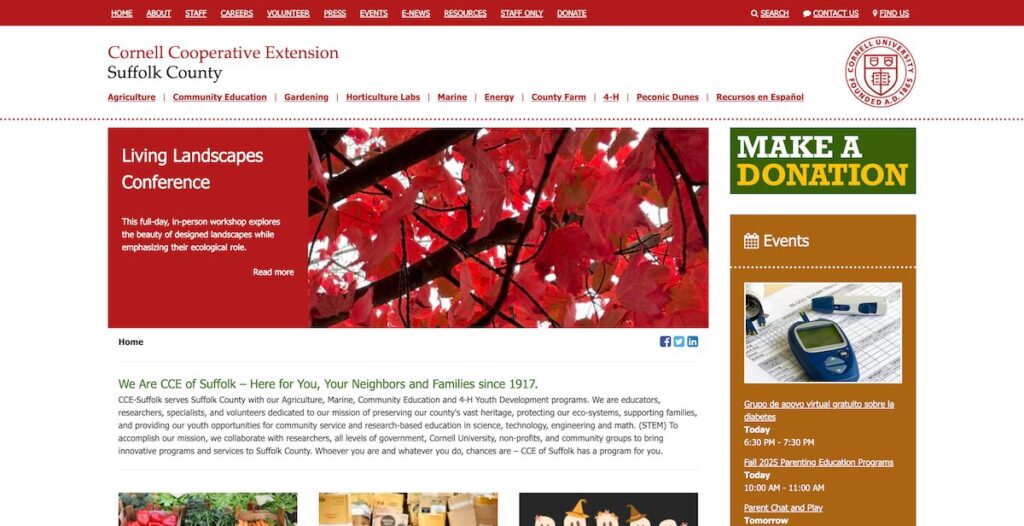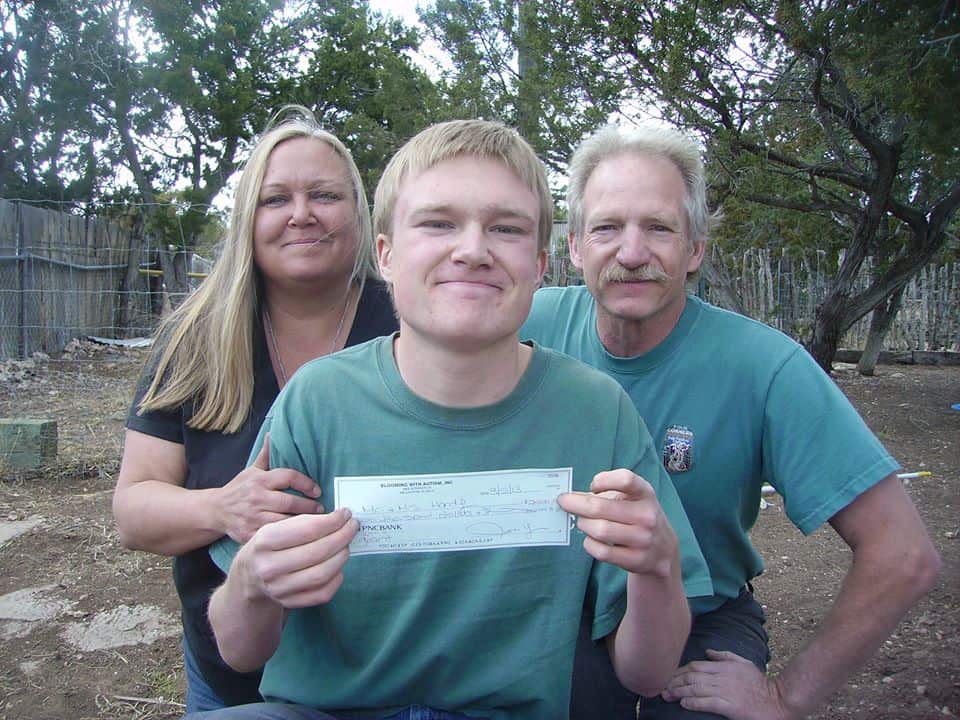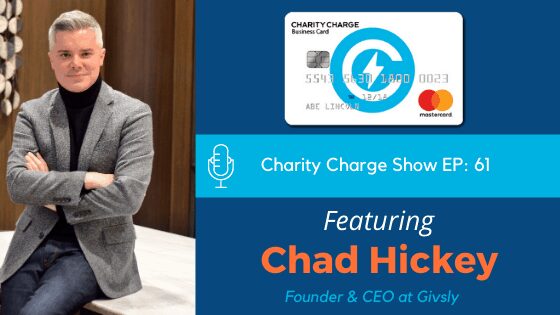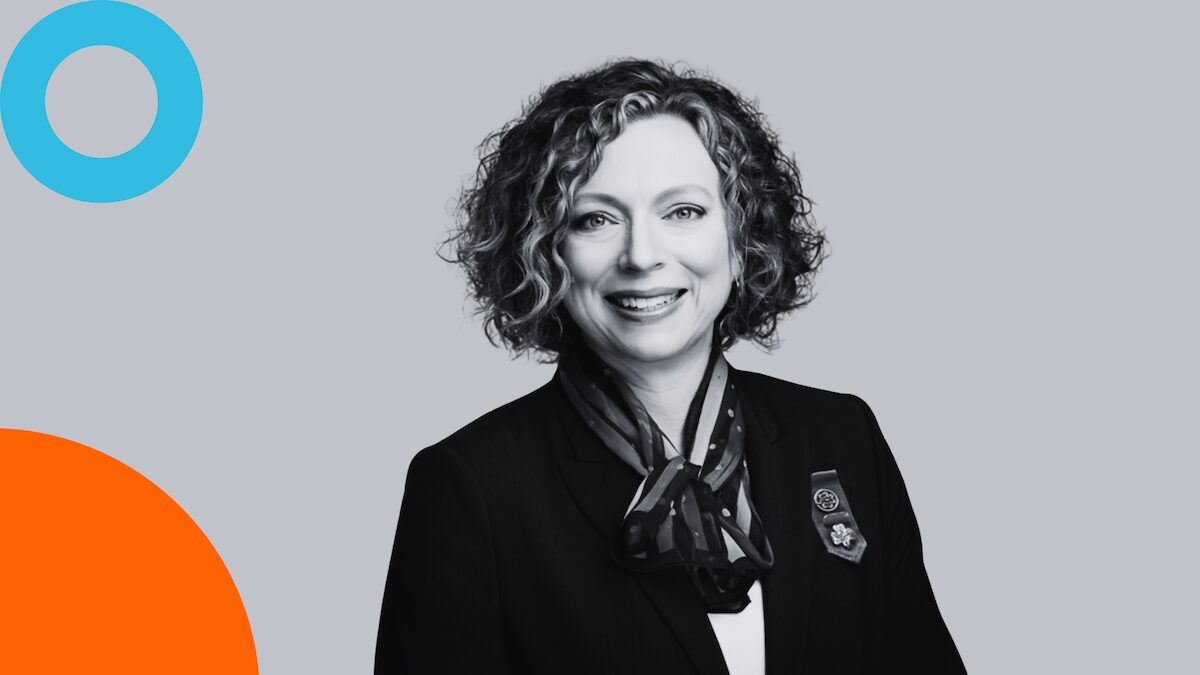In this episode of the Charity Charge Show, Vanessa Lockel shares her nontraditional path into nonprofit leadership and how Cornell Cooperative Extension of Suffolk County serves 1.5 million Long Island residents through agriculture, marine programs, youth development, and community education. She walks through lessons learned leading a large, multi-site organization during the pandemic, the evolving funding landscape, and why AI literacy is fast becoming a must-have capability for nonprofits of every size.
Key Takeaways
- Local roots, statewide reach: New York’s extension system operates at the county level, which lets CCE Suffolk tailor research and education to hyperlocal needs in agriculture, marine resources, health, and youth development.
- Scale and scope: CCE Suffolk manages 10+ facilities, 220 to 350 seasonal staff, and over 2,000 active volunteers, supporting farmers, families, and youth across Long Island.
- Real community problems, practical responses: From invasive species threatening vineyards to diabetes education and shoreline stewardship, CCE Suffolk connects Cornell research to on-the-ground solutions.
- Leadership realities: Executive roles can feel isolating. Coaching and structured team self-care help leaders navigate crises, pivots, and constant change.
- AI is here: You will not lose your job to AI, but you can lose it to someone who uses AI. Nonprofits should adopt responsible AI for analysis, content, and operations while keeping human insight at the center.
About Cornell Cooperative Extension of Suffolk County
CCE Suffolk is part of the national land-grant extension system that translates university research into practical programs for the public. In New York, Cornell University serves as the land-grant institution and partners with county extensions to deliver local services. Suffolk County is one of the largest and most complex in the state, with strengths in horticulture, viticulture, aquaculture, youth development (4-H), and community health and nutrition.
What makes Suffolk unique
- Agricultural diversity: 550+ commercial farms produce vegetables, fruits, flowers, and wine grapes.
- Marine leadership: CCE Suffolk’s Marine Program supports shellfish restoration, aquaculture, and coastal resilience.
- Youth programs at scale: Thousands of young people participate annually through 4-H camps and education.
- Community health: Evidence-based nutrition education and chronic disease prevention reach vulnerable populations.
Vanessa’s Path to the Sector
Vanessa began in theater production, moved into workforce support at JP Morgan, then transitioned into nonprofit work teaching financial skills to transitional inmates at Sing Sing. After Superstorm Sandy, she helped Long Island communities plan for recovery and resilience, served as the governor’s Long Island regional representative, and later joined CCE Suffolk as executive director in 2020.
Transferable skills from theater: building teams behind the scenes, coordinating complex productions, and communicating impact to audiences and stakeholders.
Leading Through COVID and Beyond
Starting in September 2020, Vanessa met most of her 220 colleagues on Zoom and used CCE Suffolk’s 272-acre farm to hold safe outdoor meetings. The organization pivoted to virtual delivery, then back to in-person as communities sought connection. During this period, CCE Suffolk strengthened relationships with federal, state, regional, and local partners and grew revenue by aligning programs to emerging needs.
Leadership mindset: ride the wave, do not fight it. Advocate by informing, not inflaming. Pivot programs quickly while caring for staff who shoulder the work.

Connecting Research to Local Problems
- Farm viability: Education on best practices, compliance, and pest management helps farms navigate high costs, strict regulations, saltwater proximity, and invasive species like the spotted lanternfly that threaten vineyards.
- Public health: Nutrition education and diabetes prevention reach people who may not look “at risk” but face serious health concerns. Even as federal lines like SNAP-Ed face uncertainty, CCE Suffolk explores new models to keep core services available.
Leadership Lessons for Nonprofit Executives
- Get a coach. Elite performers do not rely on generic training. A coach who knows you can help refine strengths and close gaps. Many coaches offer discounted or pro bono support for nonprofits.
- Build self-care into operations. After tough meetings or setbacks, reset as a team so people can return ready to serve. Sustainability starts with staff well-being.
AI and the Future of Nonprofits
AI is already changing how teams ideate, analyze data, and create. Vanessa’s guidance:
- Adopt responsibly: Validate sources, check for bias, and keep human creativity in the loop.
- Invest in literacy: New hires often arrive AI-ready. Leaders should keep pace to support and direct that capacity.
- Compete smarter: Funders expect operational excellence. Organizations that use AI effectively will have an advantage.
Episode Q&A Transcript
Matt: What brought you into the nonprofit world, and how did those early steps shape your path?
Vanessa: I started in theater production, then moved into workforce support at JP Morgan. I realized I wanted to serve people directly, so I joined a nonprofit teaching inmates at Sing Sing financial skills to reduce recidivism. Living on Long Island during Superstorm Sandy pulled me into community resilience work, then a regional role for the governor, which positioned me to lead CCE Suffolk.
Matt: Did your theater background translate into nonprofit leadership?
Vanessa: Yes. Production work teaches coordination, roles, timing, and the importance of showing the work. Nonprofits also need visibility. When people see the impact, they are more likely to support it.
Matt: You started at CCE Suffolk in 2020. What has changed since then?
Vanessa: I began in the middle of COVID and met most staff virtually. We used our farm for safe meetings and pivoted programs online. As in-person returned, we focused on reconnection. We strengthened partnerships across government levels and continued to grow by aligning to community needs.
Matt: Help us understand Suffolk County and the extension model.
Vanessa: New York has county-level extensions. Suffolk is one of the largest, serving about 1.5 million residents. We support agriculture, marine, youth development, and health. We have 10+ facilities, hundreds of staff, and thousands of volunteers. Suffolk leads in horticulture and has a significant wine and aquaculture sector.
Matt: Examples of how you solve local problems with research?
Vanessa: Farmers face high costs, strict rules, salt exposure, and invasive species like the spotted lanternfly. We bring research-based practices to keep farms viable. On health, diabetes education is vital. Even as funding lines change, we look for new ways to keep delivering what the community needs.
Matt: What leadership lessons would you share with nonprofit executives?
Vanessa: First, get a coach. It is not about fixing you. It is about refining a leader who is already operating at a higher level. Many coaches support nonprofits at reduced rates. Second, institutionalize self-care. After tough moments, create space for recovery so the team can return strong.
Matt: What gives you optimism for the future of nonprofits?
Vanessa: AI is both exciting and challenging. It can accelerate ideas and analysis, but we must validate sources and keep human creativity at the center. Organizations that learn to use AI well will have an edge in funding and impact.
Matt: How can listeners support CCE Suffolk?
Vanessa: Visit ccesuffolk.org and consider a donation to youth, agriculture, marine, community education, or administration. Every gift helps us serve Suffolk County.

















